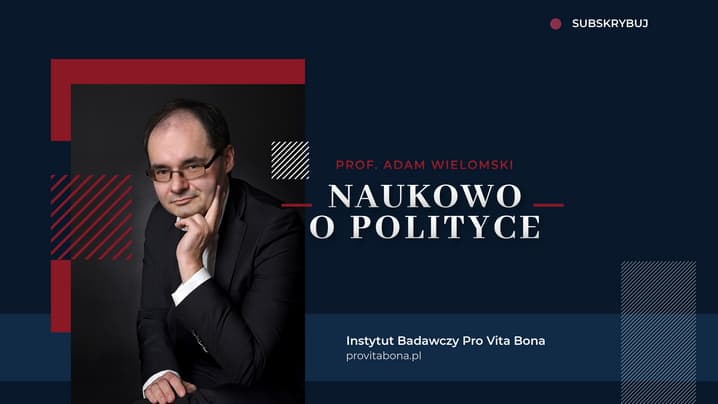Mark Wegierski looks at post-secondary education in Poland, based partially on some personal experiences from twenty years ago.
The number of students attending public and private universities and colleges in Poland has been reaching ever-higher levels with every year. There has been an incredible boom in private colleges since the 1990s. Also, there have been numerous State Higher Schools of Vocational Learning established. However, the ever-higher tuition costs for some studies (as well as the high costs of living in the major university towns), and high levels of poverty in Poland, may mean that above-average but not stellar students, from less affluent families, may not get the chance to attend university. There is also a major trend to “political correctness” and probably too much emphasis on E.U. guidelines in some institutions of higher learning, resulting in less and less Polish patriotic spirit. A parallel trend is the excessive stress on career-related business and technical studies, rather than on what could be seen as a better-rounded education in liberal arts such as philosophy, history, and literature (at least for part of one’s pre-professional studies).
I recall that on Friday, September 27, 2002, I had travelled with my female relative from Ciechocinek, the spa and resort town at which I was staying during the late summer and early autumn of 2002, southwestward to Lodz, the second-largest city in Poland. She drove a compact yet elegant Peugeot 206. Ciechocinek lies about two hundred kilometers northwest of Warsaw. She was going to pick up the formal graduation papers associated with the Master’s degree she had just completed, at the Wojskowa Akademia Medyczna (Military Medical Academy) in Lodz. There was some urgency to the matter, as the WAM was merging with another institution to become the Uniwersytet Medyczny (Medical University) in Lodz. The WAM had been open to civilian students for a number of years, and my relative had completed a Master’s in Public Health on a part-time basis. As we sat in the car in front of the guard-house entrance to the university, I recalled her complaints, in earlier telephone conversations, about the long trips to classes she had to take from the environs of Ciechocinek, where she lives, to Lodz, often in inclement weather.
The WAM campus consisted of several large buildings constructed in what I thought to be a 1920s, Neoclassical style. I still remember the pleasant sunshine and warm weather at the time of our trip there, on that day in September.
Among her other studies, my relative has completed a Licentiate (the Polish equivalent of a B.A.) in Cosmetology, at the “Rydygier” Medical Academy in Bydgoszcz, Poland. There was some controversy when that Medical Academy proposed to merge with the Nicolaus Copernicus Univeristy (Uniwersytet Mikolaja Kopernika – UMK) in Torun – since the city administration of Bydgoszcz had hoped that the “Rydygier” Medical Academy could have become part of a major new university in Bydgoszcz itself. Indeed, the “Rydygier” Medical Academy became the Medical College of Nicolaus Copernicus University. Nevertheless, a few years later, there was a major university established in Bydgoszcz – Uniwersytet Kazimierza Wielkiego (UKW) (University of King Casimir the Great).
Having reached Lodz, we then continued southward to Czestochowa, where most of my relative’s immediate family – including her mother, sister, and brother – live, in a fairly big house with a large yard, on the city’s outskirts. Driving around Czestochowa, we noticed the large, elegant building of the Akademia Polonijna (Polonia University), a major new private college, which is very well-regarded – as seen, for example, in its high place in the annual college rankings put out jointly by the large-circulation newspaper, Rzeczpospolita (The Republic) and Perspektywy (Perspectives), a major magazine for students. The Akademia Polonijna has set, as one of its missions, extensive cultural and scholarly interaction with persons of Polish descent living abroad, as well as documentation of the various cultural and patriotic achievements of the various “Polonia” communities. (“Polonia” is the term often used in the Polish language to describe Polish communities outside of Poland.) The combination of the activities of the Akademia Polonijna may, indeed, be seen as felicitous.
Since we had arrived unannounced at her family’s house, we decided to go for supper to Zornica, an elegant restaurant (and inn) on the southern outskirts of Czestochowa, built in the style of the Goral (Polish Mountaineer) architecture. Although, at six P.M., the place was rather empty, my dish was nevertheless tasty, consisting of pork medallions baked with mountaineer cheese and mushrooms, along with spicy roast potatoes, on a bed of sauerkraut.
We went back to the house for tea and cake, and then started the long trip back to Ciechocinek at about 8 P.M. In a feat of driving I thought incredible, we got back to Ciechocinek somewhere after midnight.
Many young people (as well as some persons in middle age) in Poland today, face the problem that, although they may in fact have very good training in a technical or business field, jobs for them simply don’t exist. The unemployed graduate of Management and Marketing studies in Poland is a virtual cliché. The nationwide average of unemployment was for many years around twenty percent, and was actually somewhat higher for young people, and in certain regions, such as the southeast. And, in fact, two to three million Poles (especially younger people), have actually left since 2004, emigrating mostly to Great Britain, Ireland, and other E.U. countries. Those Polish politicians who can somehow improve the employment situation in Poland, in a way that will be sustainable over the long run, can expect to receive major support from the people of Poland.
Mark Wegierski
(An earlier version of this article has appeared in Polonez: Canadian-Polish News (1-15 January 2007), p. A1.)




niech mi ktoś – z redakcji konserwatyzm.pl – wytłumaczy CEL publikowania wypocin tego gostka??
bo nie sądzę aby ten facet był w stanie sam wytłumaczyć CEL swojego pisania – teraz oraz poprzednie??